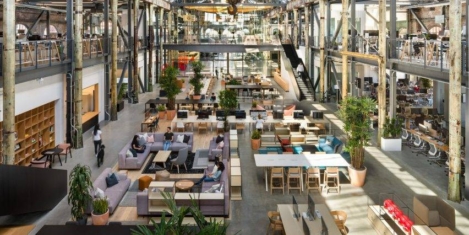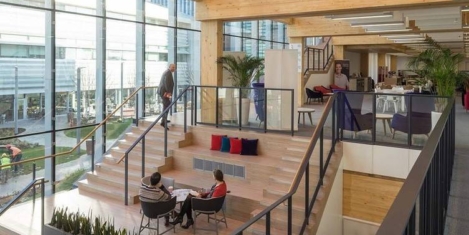December 11, 2018
Generations differ on what makes them happy at work but agree on flexibility
 A new survey into happiness at work suggests it is viewed differently according to age. Baby boomers: aspire to have job security and think careers are defined by employers. Gen X: aspire to have a work-life balance and although are loyal to a profession will not necessarily stick with the same employer. Millennials or Gen Y aspire to have freedom and flexibility and are digital entrepreneurs while Gen Z aspire to have security and stability. The report by Instant Offices’ considered what is important to each age group, and how employers approach the age gap. It found that eight in 10 millennials look for a manager to act as a mentor or coach; Baby boomers want a boss to be ethical, fair and consistent, while 61 percent of Generation X, and 55 percent of millennials, think team consensus is important. More →
A new survey into happiness at work suggests it is viewed differently according to age. Baby boomers: aspire to have job security and think careers are defined by employers. Gen X: aspire to have a work-life balance and although are loyal to a profession will not necessarily stick with the same employer. Millennials or Gen Y aspire to have freedom and flexibility and are digital entrepreneurs while Gen Z aspire to have security and stability. The report by Instant Offices’ considered what is important to each age group, and how employers approach the age gap. It found that eight in 10 millennials look for a manager to act as a mentor or coach; Baby boomers want a boss to be ethical, fair and consistent, while 61 percent of Generation X, and 55 percent of millennials, think team consensus is important. More →









 Generation Z, the latest generation to enter the workforce, are more likely to be motivated by job satisfaction and working for social good than by money, a new report claims According to new research from Huawei, in partnership with Chris Brauer, Director of Innovation at Goldsmiths, University of London, based on responses from 2,000 18-25-year olds’ across the UK, also reveals that a new tribe of working professionals among Gen Z is emerging, the ‘New Working Order’.
Generation Z, the latest generation to enter the workforce, are more likely to be motivated by job satisfaction and working for social good than by money, a new report claims According to new research from Huawei, in partnership with Chris Brauer, Director of Innovation at Goldsmiths, University of London, based on responses from 2,000 18-25-year olds’ across the UK, also reveals that a new tribe of working professionals among Gen Z is emerging, the ‘New Working Order’. 


 People and machines are entering a new era of learning in which artificial intelligence (AI) augments ordinary intelligence and helps people realise their full potential. But CIOs need to prepare workers for a future in which people do more creative and impactful work because they no longer have to perform many routine and repetitive tasks, according to analysts speaking at the
People and machines are entering a new era of learning in which artificial intelligence (AI) augments ordinary intelligence and helps people realise their full potential. But CIOs need to prepare workers for a future in which people do more creative and impactful work because they no longer have to perform many routine and repetitive tasks, according to analysts speaking at the 




















